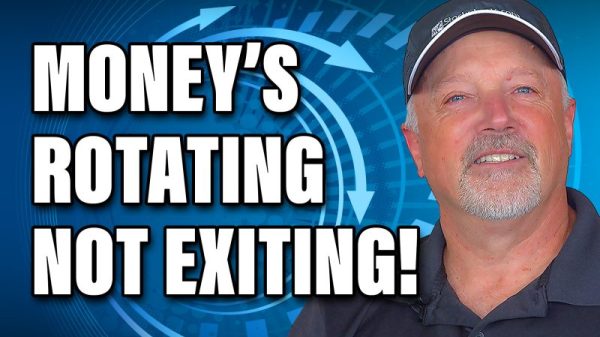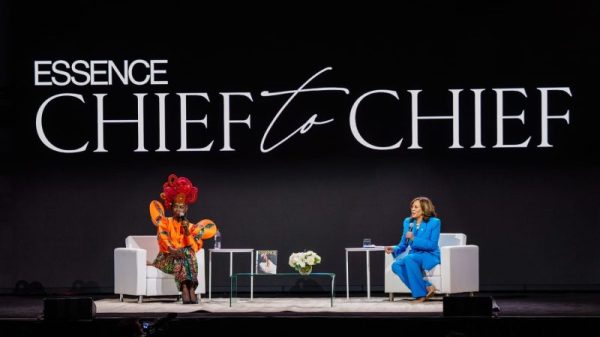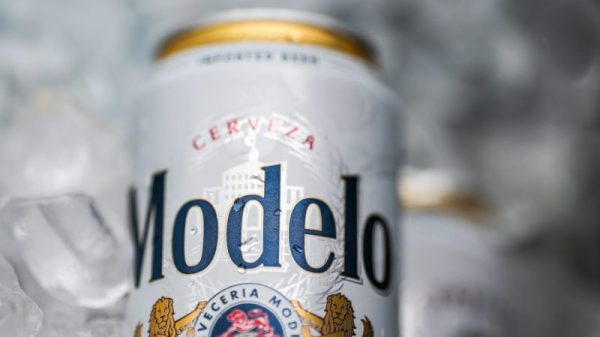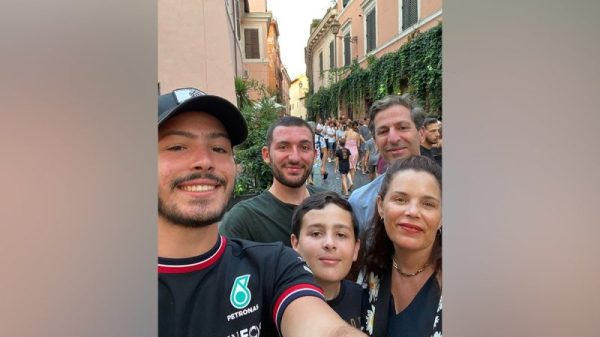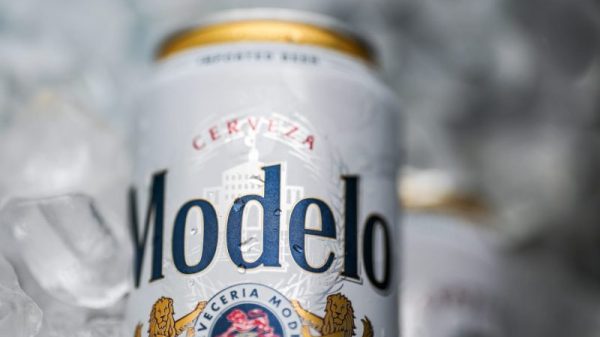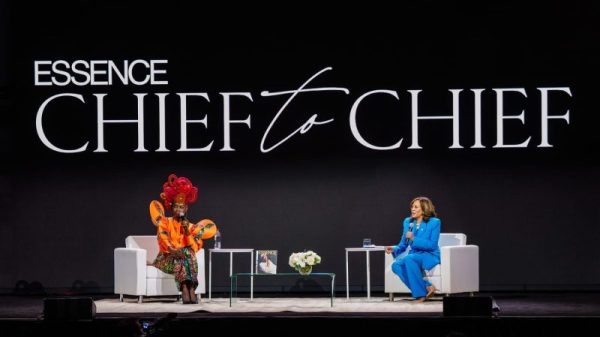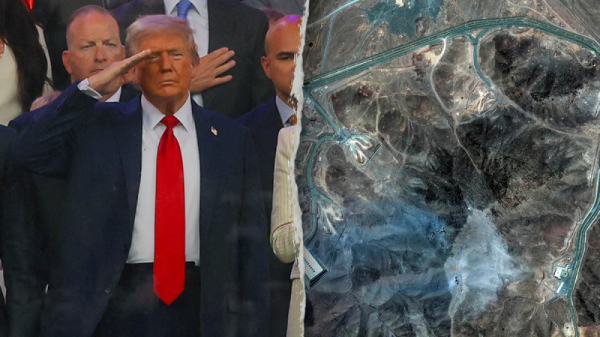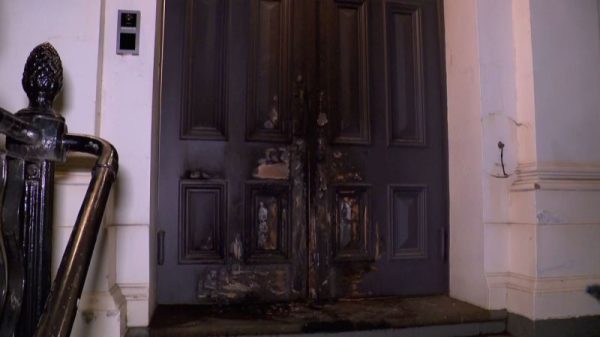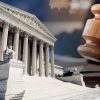For months, top advisers to Donald Trump expected that he would be convicted by a New York jury on all 34 felony counts. So Trump and his team waged an all-out war against the judicial system before the verdict came in, hoping to blunt the political damage and position him as a martyr.
They sent hundreds of fundraising appeals attacking the prosecutors and the system, raising millions of dollars on false claims. They lined up allies outside the courthouse almost every day to question the fairness of the proceedings. Trump attacked the judge, the judge’s daughter and, finally, even the jury — ordinary, anonymous New Yorkers called to perform their basic civic duty.
On Thursday, that jury convicted Trump, and the foundational democratic principle that no one is above the law withstood the first-ever criminal trial of a former American president. Despite the attacks, the system worked as designed, analysts said.
“Human beings have their weaknesses and our institutions have their weaknesses, but a jury trial is as good as we can do,” Nancy Marder, a Chicago-Kent College of Law professor who studies jury trials, said in an interview.
But amid the relentless offensive by Trump and his allies on the legal infrastructure holding him accountable, the trial came with a substantial cost, according to those who study democracy, with the ultimate impact likely to be measured in November.
“The judicial system has taken a body blow from Trump’s assaults,” said Kim Lane Scheppele, a professor of sociology at Princeton University who studies the rise and fall of constitutional government. Forcing him to sit through the trial, follow orders and listen to evidence against himself meant that “his rage at being controlled by others is going to be directed at trying to bring the whole judicial system down with him.”
Indeed, Trump went on a long diatribe after his conviction was announced. “This was a disgrace,” he said. “This was a rigged trial by a conflicted judge who was corrupt.”
The courts have been the greatest check on Trump’s efforts to consolidate his control over the country’s levers of power, and since late 2020, when he began intensifying his offensive against the judiciary, serious investigated threats against federal judges have more than doubled, from 224 in 2021 to 457 in 2023, according to the U.S. Marshals Service, as first reported by Reuters. “The attacks against the country’s democratic institutions not only have effects on those willing to serve in those positions, but they also lower the perceived legitimacy of institutions that should stand above the political fray,” Scheppele said.
But there was something different about Trump’s repeated complaints about this first criminal jury trial that made them even more potent, experts say. Whenever a politician is brought up on charges, “every single time that leader will scream up and down that this is a politicized process and his political enemies are out to get him,” said Steven Levitsky, a professor of government at Harvard University. “What’s notable here,” said Levitsky, co-author of the book “Tyranny of the Minority: Why American Democracy Reached the Breaking Point,” “is that the entire Republican Party is marching in lockstep, along with right-wing media, claiming that the legal process has been weaponized, and therefore eroding public trust in a really vital institution.”
“He has very effectively convinced Republicans that this was a rigged process,” said Alex Conant, a Republican strategist. “He hasn’t as much tried to tell people he’s innocent, but he’s tried to erode the credibility of the process, and he’s been effective.”
Trump allies believe there were legitimate issues with the case, which was turned down by federal prosecutors after a long investigation — and was seemingly revived last year, some seven years after the offense.
Only about one-third of U.S. adults say Trump did something illegal in the hush money case. Close to half of the same population thinks he did something illegal in the other three criminal cases pending against him, according to an AP-NORC Center for Public Affairs Research poll conducted in early April.
After weeks of Trump’s attacks, New York Supreme Court Justice Juan Merchan imposed a gag order that Trump violated 10 times, including with his pronouncement that “the jury was picked so fast — 95 percent Democrats. … It’s a very unfair situation,” before he was held in contempt and surrogates showed up to say what Trump couldn’t say himself without risking jail. Their presence inside and outside the courtroom, dressed in blue suits and red ties like the man they had come to support — elected representatives from the first branch of government gathering at a proceeding of the third branch designed to hold to account a former leader of the second branch — was a vivid sign of Trump’s control over his party’s leaders in Congress, and the precariousness of democracy’s ability to check this assault from its right flank.
“It was striking to have the three branches of government all in one room,” said Robert Lieberman, a political science professor at Johns Hopkins University, “but that portrait was skewed given that this is a group of people that skipped votes and care less about governing than about the sort of atmospherics of their attachment to Donald Trump.” The courtroom scene “is a good metaphor for the risks that we’re facing as a democracy,” added Lieberman, co-author of “Four Threats: The Recurring Crises of American Democracy,” a study of the common factors in democracies in decline.
The courtroom featured “all the shady characters you could want: a porn star, a tabloid editor, a fixer, all a bit disreputable, and beneath the dignity of the office of the president,” said Sophia Rosenfeld, professor of history at the University of Pennsylvania and the author of the book “Democracy and Truth: A Short History.” Such scandals often damage the reputation of a nation’s leader and can even end their time at the top of government. But this one didn’t even create “blockbuster” ratings. (It was not televised — a decision that itself limited the public’s exposure to the proceedings — but most news channels spent considerable time trying to cover it.)
“The expectations for Trump are so outside the norm that it doesn’t register, and even more, I would say it helps almost kind of define him as a person who never has to follow any of the normal rules,” Rosenfeld added. “That’s a commentary on what today’s American democracy has come to expect.”
Trump noted this phenomenon at a fundraiser last week when talking to his supporters about the trial. “Now the only thing good about that is my poll numbers will continue to go up,” he said, according to attendees. (Despite Trump’s strong hold on his party faithful, polls indicate that the conviction could marginally hurt him with voters this fall.)
“There has been nobody defending the process,” said Conant, the GOP strategist. “All the public has heard is Trump attacking the process, and nobody has been defending it on his level.”
“You’re entitled to an impartial judge and an impartial jury,” said Marder, the Chicago-Kent College of Law professor. “But you’re not entitled to one that’s sympathetic to you, but that’s what the former president seems to be saying he wanted.”
The trial began after a string of setbacks in efforts to hold the former president accountable for alleged wrongdoing. Even before his legal team delayed the three other criminal cases against him, most likely until after the election, Trump had escaped consequences from special counsel Robert S. Mueller III’s investigation into attempts to sway the 2016 election, survived congressional impeachments in 2019 and 2021 that also involved election interference, and beat back several states’ push to keep him off the 2024 ballot because he’d engaged in insurrection.
“It is unfortunate that far and away the least important case is the one that’s being tried before the election,” Levitsky, the Harvard professor, said as the trial was underway. “The problem is that not even the best institutions in the world can function well in the context of extreme polarization, particularly when one party has turned against democratic institutions. And so extreme polarization and extreme radicalization will undermine and destroy even the best of institutions. And that’s what we’re seeing in the United States.”
But even if Trump damaged the judicial system’s reputation through his complaints about the trial, to not prosecute “when there’s a strong sense that wrongdoing happened,” Levitsky said, would be more damaging. “That would hold the judicial system and the political system hostage to say that to prosecute will bring more blowback than benefit. If you give in to that, you have no rule of law.”
Throughout the trial, Trump did his best to ensure blowback. Early on, he complained privately that his supporters — so critical to his hold on power — weren’t showing up sufficiently for him in the courtroom, according to people who spoke to him at the time and spoke on the condition of anonymity to describe private conversations. That weak showing changed when Trump senior campaign adviser Susie Wiles called Sen. Rick Scott (R-Fla.) and asked him to attend. He obliged on May 9, and then attacked the judge’s daughter and the lead prosecutor and issued a broad swipe at the “political thugs” he alleged were running the case against Trump.
“What he is going through is just despicable,” Scott told reporters outside the courtroom, arguing that the trial was “clearly criminal.” Scott missed a vote that day in the Senate.
“People need to show up when people are being attacked like this,” Scott said in an interview. He made the trip in part as a message to his constituents that “you should be scared to hell of your federal government if something doesn’t change.”
Scott repeated the false allegation that a top Biden Justice Department official had been instructed to take on the case. Such a prosecution “wouldn’t happen to anyone but Biden’s political opponent. It’s just pure politics,” added Scott, who is running to be the Republican leader of the Senate. He said he believed that all the evidence was hogwash, and he was glad to see others follow him.
After Scott addressed the cameras, other elected Republicans wanted to follow suit — and they started calling Trump aides to arrange their trips. Sen. J.D. Vance (R-Ohio), who is among the contenders to be Trump’s running mate, showed up and later posted on social media about the “dingy court house with people like Alvin Bragg,” referring to the Manhattan district attorney who brought the case. Sen. Tommy Tuberville (R-Ala.) attended the same day and attacked the jurors for being “supposedly American.”
Tuberville later appeared on Newsmax and said he had gone to help Trump “overcome this gag order.” House Speaker Mike Johnson (R-La.) traveled to the trial as well. The House Freedom Caucus officially organized a trip to the courthouse.
There were implicit threats of violence. Rep. Matt Gaetz (R-Fla.) posted on social media a photo of himself outside the courtroom, directly behind Trump. “Standing back, and standing by, Mr. President,” Gaetz wrote, a caption that echoed comments Trump made shortly before the 2020 election to the Proud Boys, a far-right extremist group whose leaders were convicted of seditious conspiracy after the Jan. 6, 2021, attack on the Capitol.
At a Texas fundraiser last week, Trump told attendees: “Even if you have a landslide case, you could have the greatest case ever, and if you’ve got an Obama judge, it doesn’t matter what you had. … They are so dishonest. It’s so bad. The judiciary has got a problem.” (Both the hush money trial and the Georgia case feature state judges — New York’s appointed and Georgia’s elected — and the two federal cases involve a Trump-appointed judge and a Barack Obama-appointed judge.)
Hours before the New York jury began its deliberations, Trump posted on social media: “KANGAROO COURT!”
This followed a long riff at another fundraiser last week against the judicial system. “These are dirty players, these are bad players,” he said, according to attendees. “And then they call me a threat to democracy. [Biden’s] a threat to democracy.”






